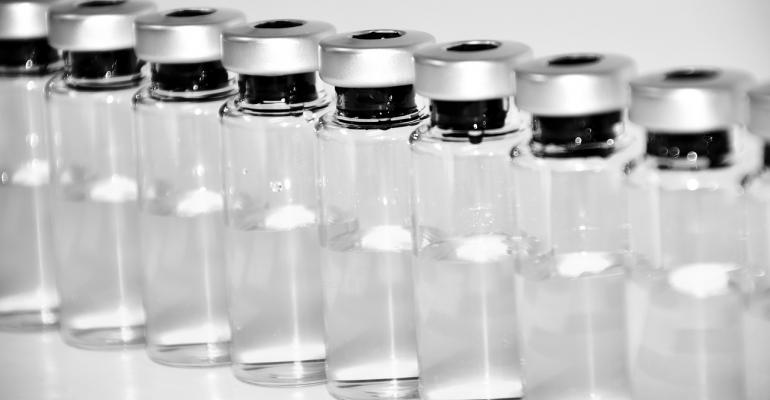First local vaccine manufacturing plant, wholly owned by multinational animal health company, begins supplying PRRS vaccine to Chinese swine market.
January 28, 2019

Boehringer Ingelheim, a leading global animal health company, announced that its Ingelvac PRRS MLV swine vaccine, produced by its veterinary vaccine manufacturing plant in China Medical City in Taizhou, Jiangsu province, has now officially been supplied to the Chinese market.
Shifting from imported vaccines to locally produced vaccines will help significantly shorten the interval between the plant and animal farms, the company said in its announcement.
In the past, all swine vaccine products for the Chinese market were imported and manufactured at Boehringer Ingelheim’s plant in the U.S. However, Boehringer Ingelheim said it began building a world-class veterinary vaccine manufacturing plant in Taizhou in 2013 to demonstrate its commitment to being "in China, for China."
The first phase of the plant, with a total investment of 85 million euros, was completed in 2016. The plant’s manufacturing facilities, production process, quality control system and staffing meet Good Manufacturing Practice (GMP) standards in the European Union; in December 2017, the Taizhou plant obtained GMP certification from the Ministry of Agriculture of China, the company said.
The annual production capacity of the Taizhou plant can reach 125 million doses, with Ingelvac PRRS MLV being the first product made locally.
Porcine reproductive and respiratory syndrome (PRRS) is a common swine disease that has plagued farmers in China for 20 years, where it has a high incidence rate of 50-100% and mortality rate of 20-100%, making it a key disease that affects the development of China’s swine industry, Boehringer Ingelheim said.
In May 2012, China's General Office of the State Council released the "National Medium- & Long-Term Animal Disease Prevention & Control Plan (2012-2020)," which specified the targets for PRRS management that, by 2020, all breeding farms in China must meet the eradication standards, according to the announcement. To meet the challenging goals, immunization is one of the necessary methods for disease control and eradication.
Following the start of localized vaccine manufacturing, Boehringer Ingelheim said in the next three to four years, the Taizhou plant is expected to provide Chinese customers with more swine vaccines, which are either developed by Boehringer Ingelheim in China or brought to China under technology transfers from its U.S. plant.
“China plays a key role in Boehringer Ingelheim’s animal health business. The investment in the Taizhou plant is one of the major initiatives Boehringer Ingelheim takes to accelerate its localization strategy in China,” said Dr. Stephan Lange, Boehringer Ingelheim's head of Animal Health China Mainland, Hongkong and Taiwan. “The Taizhou plant will be a strategic hub for vaccine production in China. Its official launch and production ramp-up demonstrate our commitment to bringing the entire value chain of [research and development], manufacturing and sales in animal health business to China.”
Family owned since it was established in 1885, Boehringer Ingelheim is one of the pharmaceutical industry’s top 20 companies. Some 50,000 employees create value through innovation daily for the three business areas human pharmaceuticals, animal health and biopharmaceuticals. In 2017, Boehringer Ingelheim achieved net sales of nearly 18.1 billion euros.
You May Also Like



